- Where is Turkey located?
- What’s the capital of Turkey?
- What are the main cities in Turkey?
- What’s the official currency in Turkey?
- What is the predominant religion in Turkey?
- Turkish geography
- Turkish civilization
- Turkish cuisine
- Turkish arts
- Turkish sports
- Is Turkey safe?
- What is the best time to visit Turkey?
- Interesting facts about Turkey
- A few things to know before visiting Turkey
Where is Turkey located?
Turkey, also called Türkiye, country that occupies a unique geographic position, lying partly in Asia and partly in Europe. Throughout its history it has acted as both a barrier and a bridge between the two continents
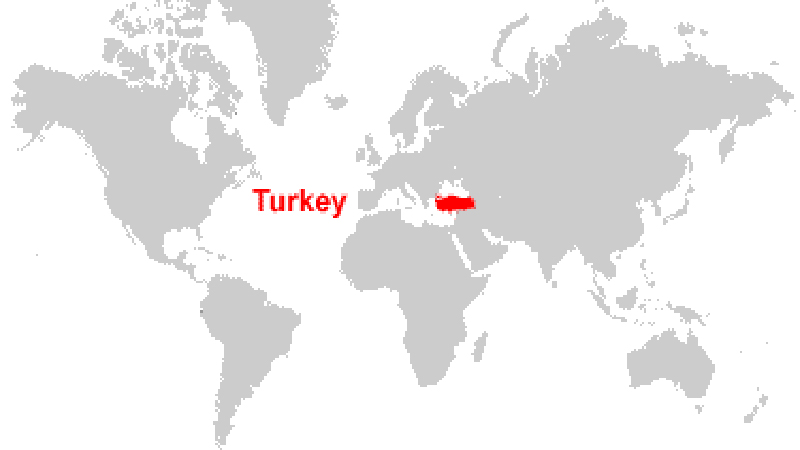
• What’s the capital of Turkey?
Ankara, Turkey’s cosmopolitan capital, sits in the country’s central Anatolia region. It’s a center for the performing arts, home to the State Opera and Ballet, the Presidential Symphony Orchestra and several national theater companies. Overlooking the city is Anitkabir, the enormous hilltop mausoleum of Kemal Atatürk, modern Turkey’s first president, who declared Ankara the capital in 1923.

• What are the main cities in Turkey?
Turkey's cities are where you experience Turkish life at its most vibrant. Many of Turkey's cities, even those known today as modern centers of business and industry, have ancient roots, and hold on to old town districts replete with the fine architecture from older eras, whether Ottoman, Byzantine, or Classical. Ankara is the main city as it is the capital, but other cities like Istanbul, Antalya,Bursa, Şanlıurfa, Izmir, Konya, Fethiye, Gaziantep, Ankara, Eskişehir are alsomain cities for tourist attractions and the economy too.
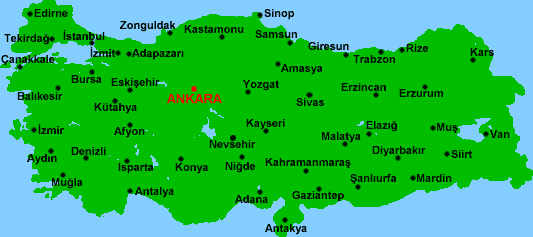
• What’s the official currency in Turkey?
The currency in Turkey is the Turkish Lira. ATMs are widely available in major cities and tourist areas. You can get local currency from banks and exchange bureaus, known as DOVIZ in Turkish.

• What is the predominant religion in Turkey?
is the largest religion in Turkey according to the state, with 99.8% of the population being initially registered by the state as a Muslim. As much as 90% of the population follows Sunni Islam. Most Turkish Sunni Muslims belong to the Hanafi School of jurisprudence. The remaining 0.2% are Christians or adherents of other officially recognised religions like Judaism.
• Turkish geography
Turkey is a large peninsula that bridges the continents of Europe and Asia. Turkey is surrounded on three sides by the Black Sea, the Mediterranean Sea, and the Aegean Sea. Istanbul, the largest city in Turkey, is built on land in the Bosporus seaway. The city is partly in Europe and partly in Asia. Turkey is larger than the state of Texas. Turkey is one of the most earthquake prone areas on Earth and has suffered from 13 earthquakes in the past 70 years. The North Anatolian Fault extends hundreds of miles from the Sea of Marmara in the western part of the country to the Eastern Anatolian Highlands. The fault moves back and forth about 8 inches (20 centimeters) a year. Turkey's highest mountain, Mount Ararat has two peaks, with Great Ararat reaching 16,945 feet (5,165 meters). The mountain is considered sacred by many people and is believed to be where Noah beached his ark after the great flood.
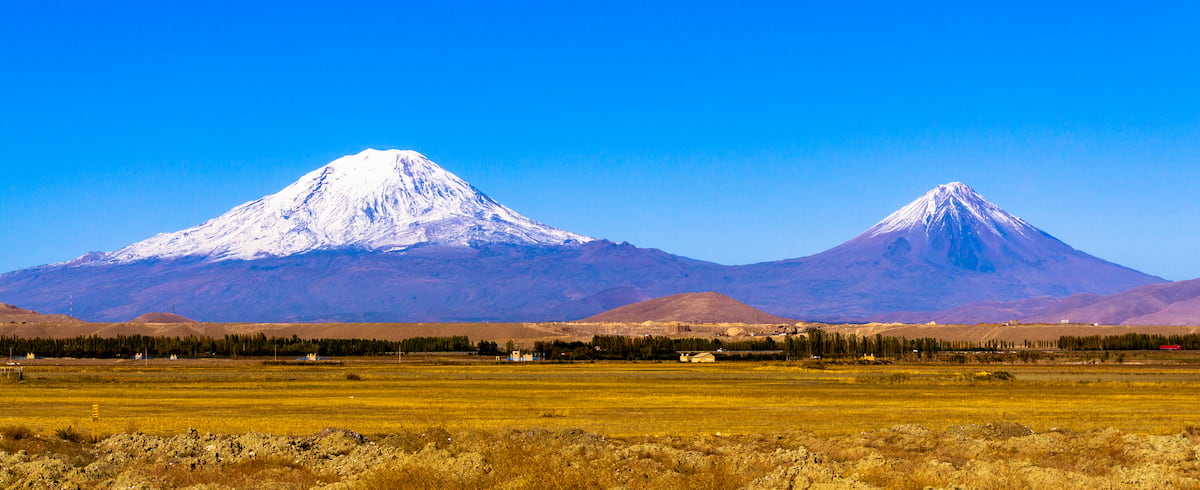
• Turkish civilization
In many ways, Turkey's history is that of mankind. With ruins of countless cultures scattered throughout this remarkable land, it is clear Turkey played an integral role in the development of organized society. From the world's first known human settlement circa 6500 B.C. at Çatalhöyük, where artwork first appeared in the form of murals and painted relief sculptures of dwellings and domestic shrines, to mighty Ottoman fortresses, Turkey bears the remnants of many of the world's major civilizations - Hittites, Phrygians, Urartians, Lycians, Ionians, Lydians, Persians, Macedonians, Romans, Byzantines, Seljuks and Ottomans.
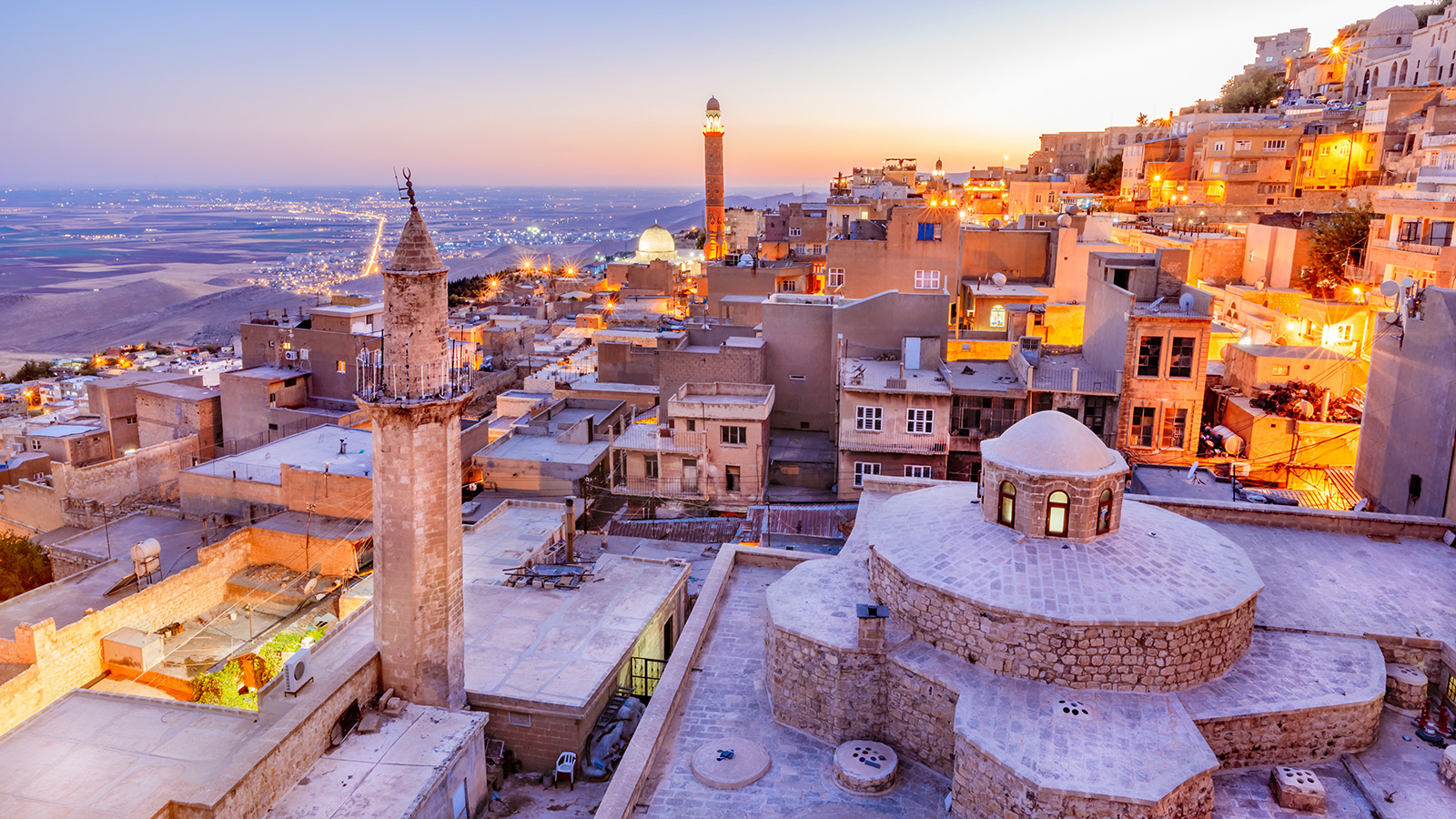
• Turkish cuisine
Turkish cuisine (Turkish: Türkmutfağı) is the cuisine of Turkey and the Turkish diaspora. It is largely the heritage of Ottoman cuisine, which can be described as a fusion and refinement of Mediterranean, Balkan, Middle Eastern, Central Asian and Eastern European cuisines.[1][2][3] Turkish cuisine has in turn influenced those and other neighbouring cuisines, including those of Southeast Europe (Balkans), Central Europe, and Western Europe.[3] The Ottomans fused various culinary traditions of their realm taking influences from and influencing Mesopotamian cuisine, Greek cuisine, Levantine cuisine, Egyptian cuisine, Balkan cuisine, along with traditional Turkic elements from Central Asia (such as mantı, ayran, kaymak), creating a vast array of specialities. Turkish cuisine also includes dishes invented in the Ottoman palace kitchen. Turkish cuisine varies across the country. The cooking of Istanbul, Bursa, Izmir, and rest of the Anatolia region inherits many elements of Ottoman court cuisine, including moderate use of spices, a preference for rice over bulgur, koftes, and a wider availability of vegetable stews (türlü), eggplant, stuffed dolmas and fish. The cuisine of the Black Sea Region uses fish extensively, especially the Black Sea anchovy (hamsi) and includes maize dishes.
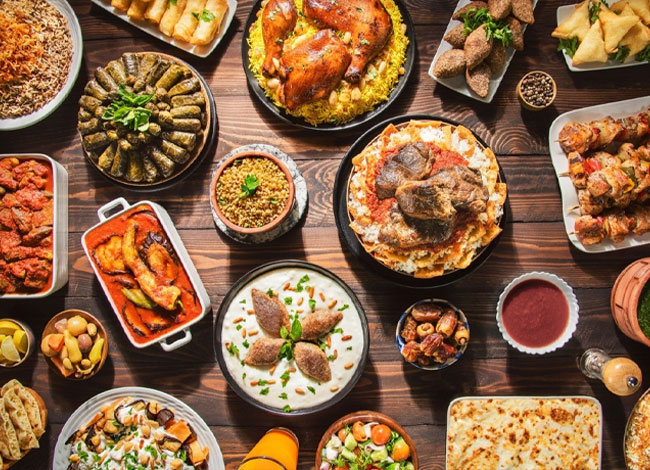
Turkish Arts
Turkish art refers to all works of visual art originating from the geographical area of what is present day Turkey since the arrival of the Turks in the Middle Ages.[citation needed] Turkey also was the home of much significant art produced by earlier cultures, including the Hittites, Ancient Greeks, and Byzantines. Ottoman art is therefore the dominant element of Turkish art before the 20th century, although the Seljuks and other earlier Turks also contributed. The 16th and 17th centuries are generally recognized as the finest period for art in the Ottoman Empire, much of it associated with the huge Imperial court. In particular the long reign of Suleiman the Magnificent from 1520 to 1566 brought a combination, rare in any ruling dynasty, of political and military success with strong encouragement of the arts.[1]
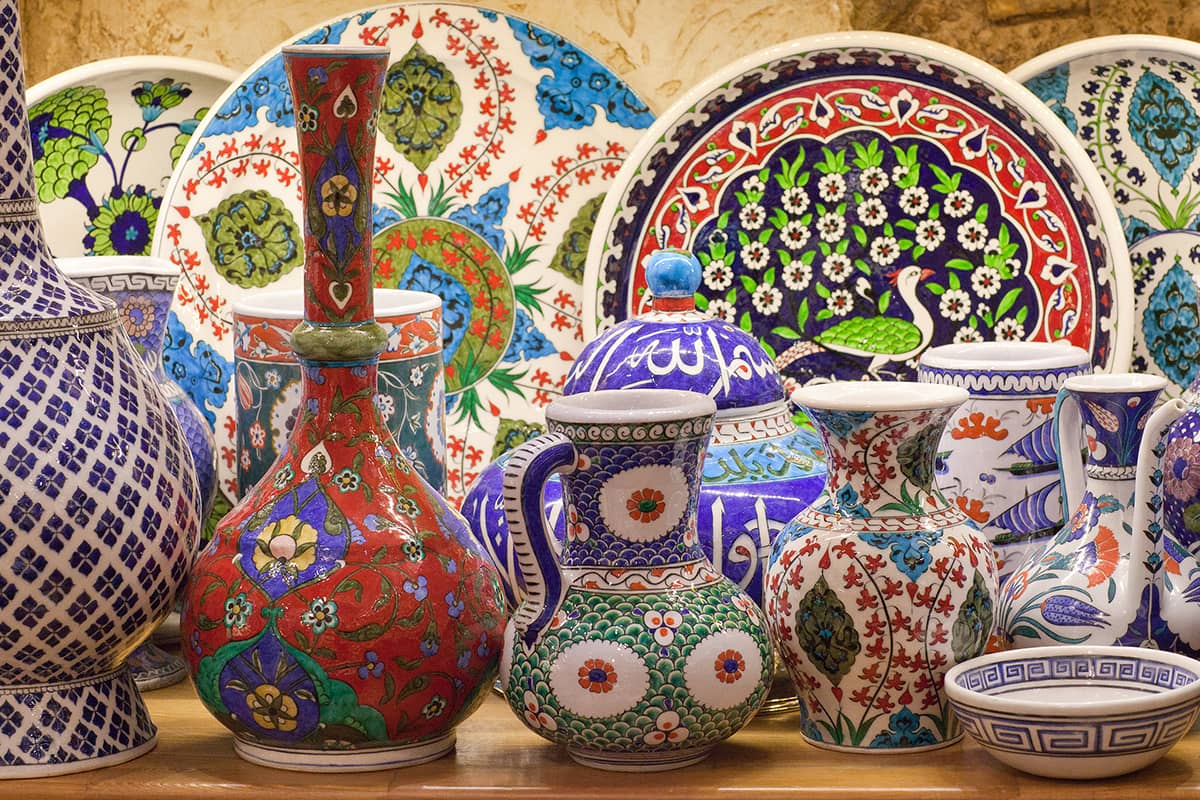
• Turkish Sports
Sports. Turkish people are devoted to sports in general and to soccer in particular. Though soccer is still the dominating sport in Turkey a number of other sports such as basketball, volleyball, handball and the ancestral game of oil-wrestling are important and has many followers.
• Is Turkey safe?
You’ll find that most people report feeling safe during their stay in the country. Foreign residents and freshly returning tourists laud the Turkish people’s kindness and hospitality. The country isn’t just welcoming, but it’s also, in many respects, as safe as most parts of Europe and North America. Unfortunately, there are reports of crime in Turkey. While tourists are unlikely to face violent crimes, especially in tourist-laden destinations, keeping your wits about you during your visit to Turkey is essential.
• What is the best time to visit Turkey?
Coastal Turkey remains relatively mild in December, while inland places tend to be colder, especially mountainous areas. While December doesn't exactly produce lounging-on-the-beach weather, coastal areas like Antalya and Bodrum average around 59°F (15°C). Istanbul, which is coastal but in the north, averages around 52°F (11°C). In contrast, the inland cities of Ankara, Konya, and Cappadocia are quite a bit colder, with average temperatures of 43-44°F (6-7°C). Rainfall is moderate in December and throughout the winter. Istanbul, Pamukkale, and Bodrum all receive a fair amount of rain, while coastal Antalya may be warm but it sees a whopping 9.5 inches (246 mm) of rain in this month, on average. Bring your umbrella (or steer clear!) General sightseeing is the best activity to plan in December, whether that's cultural and historic sites in the big cities or the dramatic landscapes of places like Cappadocia and Pamukkale. To experience a memorable cultural event, head to the Sufi pilgrimage city of Konya in December (sometimes November) to check out the Whirling Dervishes Festival If you're into skiing, you can also head to the northern Köroğlu Mountains, where there are some decent ski fields that run through the winter.
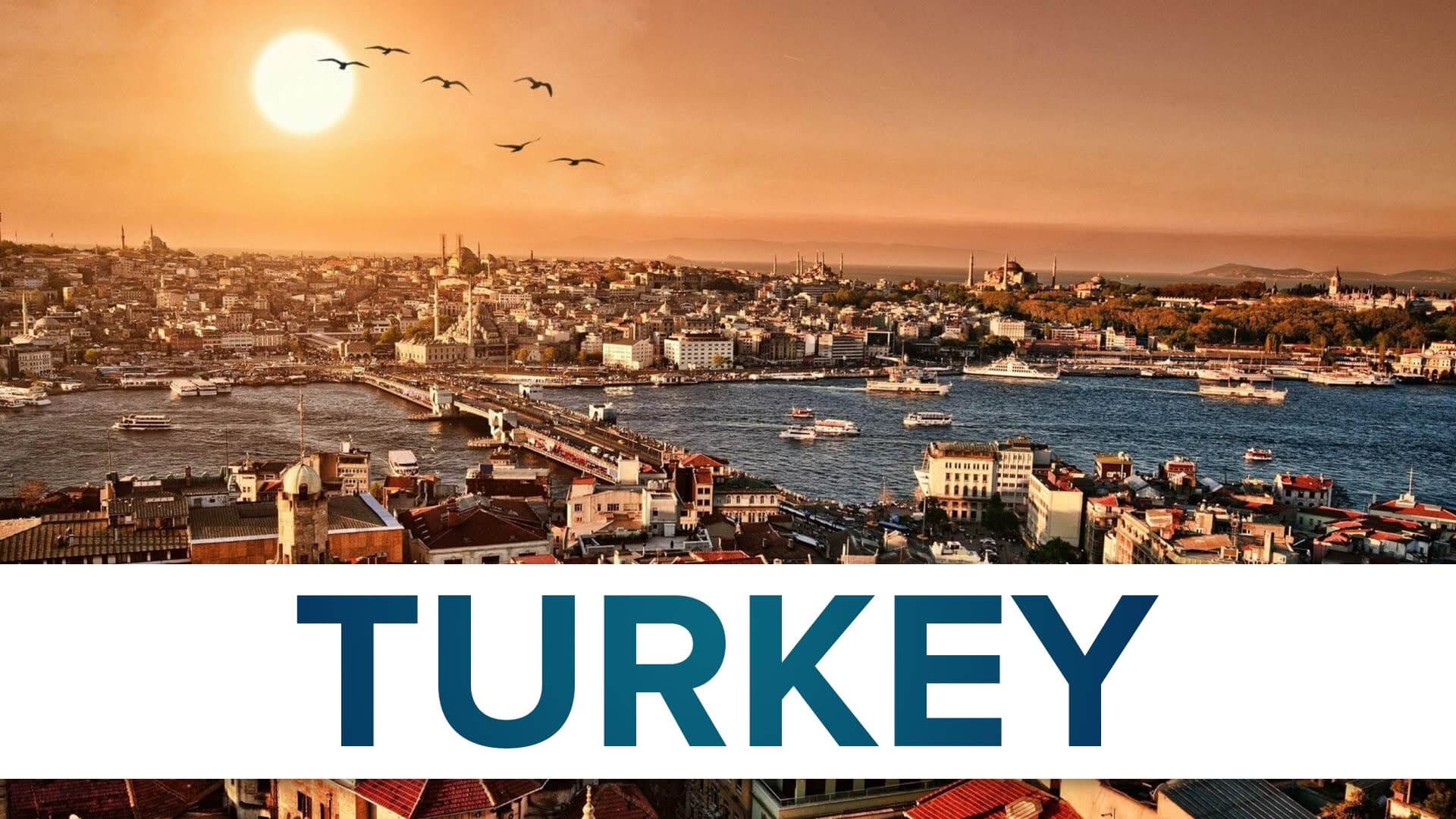
• Interesting facts about Turkey
Here some interesting facts about Turkey, Istanbul straddles Europe and Asia, Turkey has one of the World’s Biggest and oldest malls, Turkish People love drinking tea, wine Production is important, The Cultural Heritage is incredible, There Are Over 80,000 Mosques, The Turks Brought Many Products to Europe, Santa Claus Comes from Turkey, There are over 30 Languages Spoken in Turkey, Turkey is home to great mountains, It has a sea Turtle Nesting Area, Istanbul Airport Is an Important Aviation Hub, Early Christians Once Hid inCappadocia
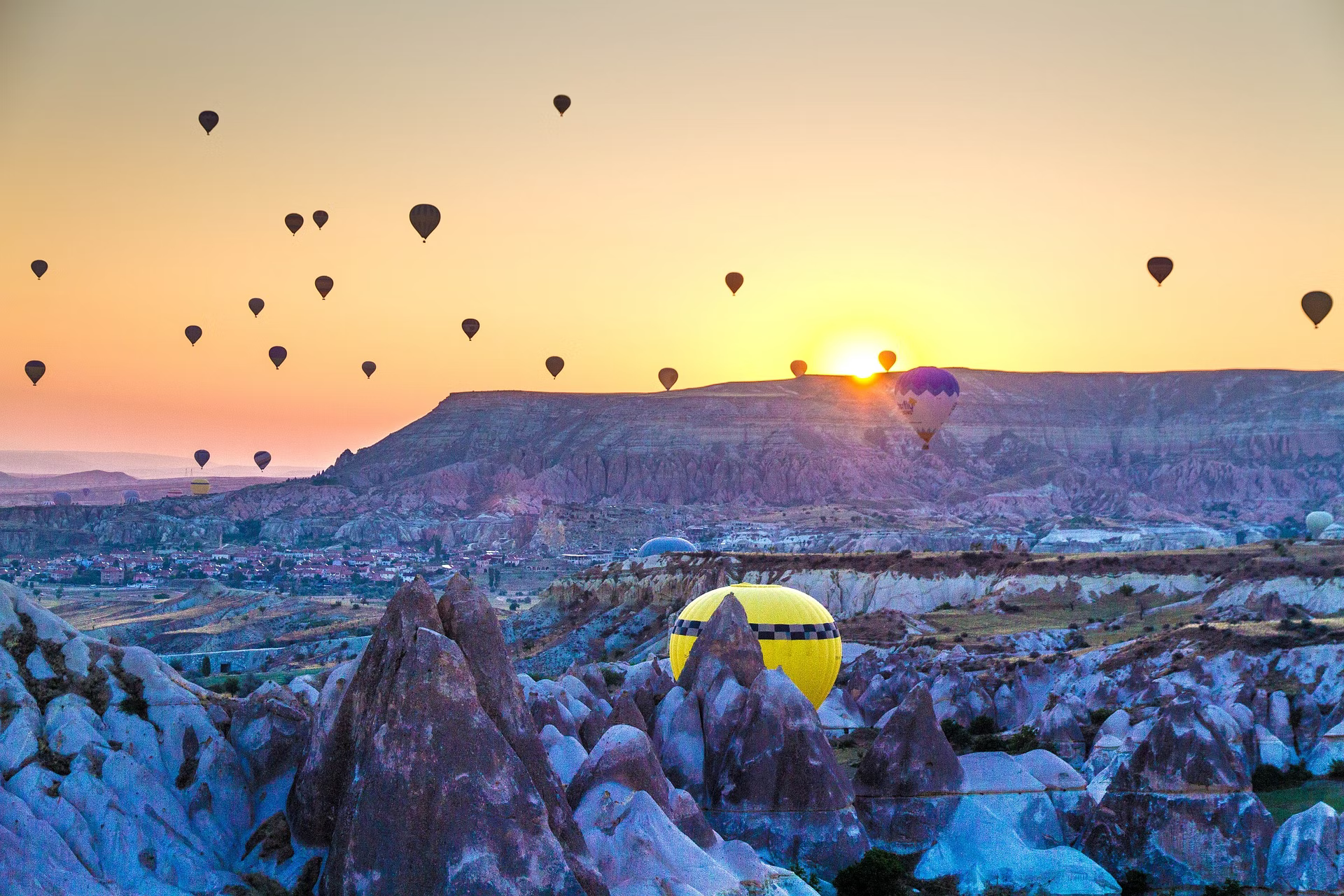
• A few things to know before visiting Turkey
● Get your visa easily
● Turkey is big, really big
● There’s more to Turkey than Istanbul
● Encounter the friendliest people
● Use public transportation
● Use money wisely (and beware of scams)
● Don’t let the negative news scare you



